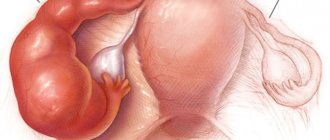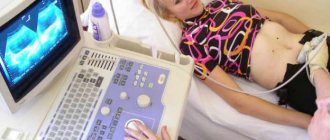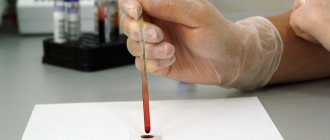Epidemic parotitis (also known as mumps, mumps) was first mentioned in the works of Hippocrates (more than 400 BC). Until now, from 300 to 600 thousand cases of the disease are registered annually around the world, mainly in children. But the average age is 19-23 years. This viral infection is known to most people precisely because of the development of a formidable complication - male infertility. In this regard, effective measures for primary prevention were developed - active widespread immunization (vaccines).
Briefly about mumps
Mumps (mumps) occupies a special place in the development of male infertility. The disease is of viral origin and is highly contagious (infectious). The source of infection can only be a person with an acute or mild (subclinical) course.
Mumps is transmitted by airborne droplets, but it has been proven that in children's groups the contact method is not excluded - through toys and dishes contaminated with the saliva of a sick child. When a person gets sick, a long-term and stable immune defense is formed - it is practically impossible to become infected again.
If the diagnosis is made
Detection of male infertility after mumps is possible only in patients at the stage of puberty. Among the diagnostic methods, the most common are: sperm analysis, testicular ultrasound and histological examination of tissue.
If the andrologist has confirmed that the patient is sterile (infertile), then you should not immediately give up. Modern therapy gives hope for a complete recovery in not advanced cases. The goal of drug treatment is to stimulate the extinct spermogenic function using a number of drugs:
- Immunostimulants (Interferon)
- Synthetic hormones (Prednisolone and other corticosteroids)
- Angioprotectors (Venoruton, Agopurin)
In case of systemic damage to the membranes of the testicles, surgical treatment is possible, which consists of removing small lesions while preserving the organ. Even in this case, the secretory functionality of the testicles may be partially or completely restored.
If long-term treatment does not help, then the man is offered, which means a formal opportunity to have children with someone else's genetic material.
Signs of the disease
The leading manifestation of mumps infection is inflammation of the parotid glands, but the submandibular and sublingual glands may also be involved. In addition, the following symptoms develop:
- Initial period:
- acute onset
- slight chills;
- discomfort in the parotid area;
- feeling overwhelmed;
- muscle pain;
- sleep and appetite disorders.
- Detailed clinical manifestations:
- symptoms of intoxication are more pronounced (fever, malaise, headache);
- swelling and pain in the projection of the salivary glands, which increases with chewing and talking;
- the skin over the affected gland is tense, swelling spreads towards the neck;
- Murson's symptom is inflammation in the area of the excretory duct of the affected parotid gland in the oral cavity.
The virus enters the blood and spreads throughout the body. It is highly tropic (tendency to damage) to glandular tissue (can affect the functioning of the prostate), kidneys, central nervous system (meningoencephalitis is possible), gonads (orchitis) and even the heart.
Mumps and diagnosis
Diagnosis of mumps is carried out in the laboratory by taking tests. The enzyme-linked immunosorbent assay (ELISA) is mainly used for antibodies to the mumps virus. It shows an assessment of immunity after vaccination and acute forms of mumps. The virus is detected in the blood already on the second day after the onset of symptoms. An ELISA test helps to detect the amount of antibodies to the virus. They also take mucus from the nasopharynx and urine. This also allows you to detect the virus and determine the presence of antibodies.
And so the main tests that help detect mumps and determine the presence of antibodies to the virus are:
- blood analysis
- analysis of nasopharyngeal mucous secretions
- Analysis of urine
Mumps and infertility
The virus primarily affects the salivary glands, but an inflammatory process in the testicles (orchitis) often develops during the disease or later. This consequence is typical for a relatively small percentage of men - from 5 to 25% of cases, and in a third of them there is a high probability of involvement of both glands.
Most often, orchitis is observed in adults, and their frequency correlates with the overall severity of the infectious process. Signs of testicular damage usually appear on days 5-7, marking a new wave of fever (up to 39-40°C). In addition, men complain of intense pain in the scrotum area, which sometimes radiates to the lower abdomen.
The elevated temperature does not subside for about 3-7 days, and the testicle gradually increases in size due to inflammatory edema. After 1-2 months, symptoms of atrophy may appear (in almost 50% of cases) if treatment with glucocorticosteroids is not carried out on time.
After an infection, fertility (the ability to conceive) is restored at various times, usually within a couple of years. Sometimes a violation of spermatogenesis can be irreversible (atrophy of functioning testicular cells) - infertility occurs.
It is important to know! Thus, not all boys who have had mumps in childhood or adolescence become infertile.
In boys
Mumps is a common disease in children under 14 years of age. It mainly affects children from 2 to 6 years old; at this age the disease is easily tolerated. Mumps attacks the glandular tissues of the body. The glands near the ears, which are responsible for salivation, begin to become inflamed.
Complicated mumps in boys: consequences - infertility
By prescribing the right treatment, you can cope with the disease in a short time. But there are also complications. The disease can affect the testicles and cause inflammation and painful swelling - orchitis. Tissue tension during swelling causes ruptures of tissues and blood vessels, which leads to impaired blood supply to the testicles. The disease also affects the tissues that are responsible for the production of sperm.
Can mumps cause infertility in boys?
Mumps is considered a disease of children. Boys and girls suffer from it. The virus itself is not dangerous. Mumps can cause infertility in boys who have entered puberty. Unnoticed swelling of the testicles in time, indicating developing orchitis, and delayed treatment can cause infertility. With edema, blood vessels are affected, thrombosis develops, and under the influence of the virus, disturbances occur in the tissues of the testicles, including atrophy. Also, due to the consequences of the virus, the immune system begins to consider sperm as a foreign body and destroy them.
Mumps in boys and will infertility necessarily happen?
Mumps is popularly considered mumps, a childhood disease. Because the bulk of the sick are children from 2 to 5 years old. But there are cases of mumps in adolescence.
The disease manifests itself after 14-25 days, but in some children it goes away without symptoms and this increases the risk of infecting others. If treatment is started on time and correctly, complications usually do not occur.
Diagnosis of male infertility
All patients must be registered at the dispensary. In the future, those who have recovered must see a neurologist and urologist for 2 years (once every third month). If a man notices that his partner cannot become pregnant (in the absence of pathology on her part), the following diagnostic measures are recommended to exclude male infertility:
- General clinical: collection of anamnesis (fact of mumps, trauma) and complaints, as well as physical examination.
- Laboratory:
- extended spermogram;
- MAR test;
- hormonal profile;
- study of antisperm antibodies;
- determination of the level of free radical generation;
- exclusion of sexually transmitted diseases (STDs/STIs), including viral ones;
- bacteriological examination of sperm;
- Ultrasound of the prostate and testicles with Doppler measurements of the vessels of the spermatic cord.
According to the doctor's indication, a CT/MRI of the pelvic and skull organs is performed (to rule out a tumor), as well as a testicular biopsy with further histological examination of the resulting tissue. All couples who are planning to conceive are recommended to undergo a medical genetic examination, since chromosomal causes of infertility on both sides are also possible.
Surgical treatment
Surgical therapy is used in extreme cases. In rare exceptions, mumps causes complications in the veins. A disease such as varicocele is present in the anamnesis of men who have had mumps infection. Varicocele of the testicles is a venous dilatation of the veins of the spermatic cord.
Pills and drugs for the treatment of infertility in men
Varicocelectomy is an operation used to restore dilated veins of the scrotum. This intervention leads to improved movement, concentration and structure of sperm.
If you start a varicocele, there is a possibility of testicular atrophy. This disease leads to a decrease in the size of the male gonads, while their function is significantly reduced or, in general, ceases to function. Testicular atrophy cannot be cured except by surgical removal of the male gonads.
Treatment of infertility after mumps
The mumps virus leads to a deterioration in spermatogenesis in 2 main ways: a violation of testicular trophism and a direct damaging effect on functional cells. Therefore, the likelihood of treatment itself depends on the amount of preserved tissue capable of producing healthy sperm.
Nothing can be done with irreversibly changed tissue (atrophy). All possible therapeutic measures will be aimed at increasing the activity of what remains. In addition, a man who wants to have children will have to change his lifestyle. A complete rejection of bad habits, moderate physical activity, proper nutrition, good environmental conditions and maximum limitation of stress factors in your environment are required. It is also necessary to promptly treat concomitant diseases and sanitize foci of chronic infection.
In each case, a set of therapeutic measures is selected individually, so there is no uniform tactic. It is possible to use hormonal drugs, vitamins, angioprotectors and agents that improve tissue metabolism. You should not refuse various physiotherapeutic methods and trips to health resorts.
Mumps: treatment and its components
Treatment of mumps without complications is carried out at home. You can use folk remedies and medications prescribed by your doctor. However, treatment of mumps occurs only after diagnosis by a doctor. Treatment of mumps includes antihistamines and anti-inflammatory drugs. Antiseptic solutions are used to sanitize the oral cavity. It is good to provide the body with the necessary vitamins, especially vitamin C. Antibiotic treatment is prescribed only when symptoms reappear. During primary infection, antiviral drugs are treated. It is also necessary to isolate the patient from healthy family members who have not had mumps.
How is infertility treated after mumps?
To avoid infertility after mumps, you need to consult a doctor in time and start treatment. First you need to take antipyretic medications and use cooling compresses. After recovery, hormonal and immunostimulating drugs may be prescribed for a long period. I also begin to stimulate sperm production. It is possible to prescribe sanatorium treatment and hirudotherapy. There are no targeted programs for the treatment of infertility after mumps. The same drugs and regimens are used as for any infertility. The main thing is not to put everything off until later and identify the problem in a timely manner.
How to treat infertility after mumps
Mumps can cause infertility. But other factors can also cause infertility. In this regard, treatment of infertility after mumps is prescribed in the same way as in other cases. Prescribed drugs to boost immunity. Hormonal and vitamin complexes. Medicines used in folk medicine are also prescribed. If the problem is detected early and treatment is started, infertility can be overcome.
Methods of treating infertility (mumps is the cause)
Infertility treatment after mumps can increase your chance of conceiving without IVF. By identifying the problem in time, effective treatment can be carried out. During infertility treatment, complex supportive medications are prescribed. Hormone therapy is prescribed. A stay in a sanatorium will also have a beneficial effect on your health. In some cases, courses of antibiotics and vitamins are prescribed. At the same time, you can engage in treatment with folk remedies.
Traditional treatment of mumps
Treatment of mumps with folk remedies should only be carried out under the supervision of a doctor. To treat mumps with folk remedies, decoctions and compresses are used. Decoctions of linden and primrose help well. You can use essential oils to make breathing easier. A decoction of nettle and rose hips will also be useful. All these herbs will help relieve fever and inflammation. They will give the body all the necessary vitamins that will help cope with the disease.
Alternative treatment for mumps: local therapy. It is good to lubricate the swollen areas with ichthyol ointment and apply vodka compresses. Rinsing with a decoction of chamomile and sage can relieve inflammation and make swallowing easier.
How to treat mumps with folk remedies
When treating mumps with folk remedies, vodka compresses are used. To relieve inflammation, rinse your mouth with a decoction of chamomile and sage. Using inhalations with essential oils will make breathing easier. To supply the body with vitamins, a decoction of nettle and rose hips is good. Inflamed areas can be smeared with ichthyol ointment and a compress of fresh cabbage leaves can be applied. To relieve inflammation and reduce fever, a decoction of linden or primrose flowers is suitable. In case of severe illness, be sure to add medications prescribed by your doctor to folk remedies.
Prevention
The only effective way to combat mumps is to prevent its development. For this purpose, a vaccine was developed back in the mid-60s of the last century. Therefore, timely active immunization will help to avoid the disease or reduce the likelihood of a severe course.
It is believed that between 5 and 50% of vaccinated children remain susceptible to the virus, so twice the immunization is necessary - at 12 months and 6 years. Those vaccinated are practically excluded from developing complications, including orchitis, which can lead to infertility.
On the territory of the Russian Federation, these vaccinations are included in the National Calendar. The following types of vaccines are used:
- "MMR-II" (Netherlands).
- “Mumps cultural live dry vaccine” (RF).
- Combined “Mumps-measles vaccine live” (RF).
- Priorix (Belgium).
Each of them has its own characteristics, including the likelihood of developing post-vaccination complications and their frequency, which must be checked with your pediatrician. People who are surrounded by a patient who are confirmed to have no infection are recommended to be vaccinated according to epidemic indications.
Does mumps affect reproductive function?
Complications from mumps can negatively affect reproductive function in both men and women. In men, inflammation of the testicles can lead to infertility. Since inflammation damages tissues and blood vessels. This prevents the reproductive system from working properly. Also, due to complications, the immune system may be disrupted, which will lead to the body’s rejection of sperm. In women, inflammation of the genitourinary system causes problems with the ovaries. And they can form adhesions in the fallopian tubes. Which can negatively affect conception. To prevent these problems, they need to be detected in time and treated.
Mumps: Reproductive function in men and women
Mumps can affect reproductive function in both men and women. Complications of the disease affect the reproductive system of both sexes. Inflammation disrupts the natural functions of the reproductive system. In men, complications can cause infertility. Women may have serious problems conceiving. Many people find out about infertility after testing. Women should pay attention to cycle disorders and pain in the lower abdomen. This will help start treatment at an early stage and avoid consequences in the future.
Does mumps cause infertility? Testicles are affected
Mumps is a virus that attacks the glandular tissues of the body. These also include the gonads. The disease begins with inflammation and swelling of the parotid glands. In the future, if complications arise, inflammation can begin in the reproductive system. When the virus affects the gonads, swelling of one or both testicles begins. This promotes rupture of tissues and small vessels. The gonads, due to impaired blood supply or thrombosis, begin to work incorrectly, which contributes to infertility.
Disease "Mumps" ("mumps"): after infertility or not?
Many people, having had mumps in childhood, only learn about infertility in adulthood. This is usually discovered during an examination after unsuccessful attempts to conceive. Infertility can occur in both men and women. Inflammation of the gonads disrupts their functioning. In women, such disorders often lead to chronic diseases and adhesions of the fallopian tubes. In men, sperm production is impaired. After mumps, you must undergo all tests to find out the severity of the consequences. By starting treatment on time, you will experience fewer problems in the future when planning a child.
Does mumps affect infertility?
There can be several reasons causing infertility. Transferred mumps may be one of them. If treatment is started at the wrong time, it can lead to serious complications. Due to the fact that the mumps virus affects glandular tissue. These also include the gonads. Having reached them, the virus causes swelling and inflammation in the genitals. The integrity of tissues and blood vessels is damaged, which leads to improper functioning of the gonads. This can lead to infertility. In women, the virus can also leave many chronic diseases. The hidden occurrence of which will negatively affect conception.
What is the likelihood of infertility after mumps?
The probability of infertility after mumps is 20%. But this can also be avoided by starting treatment on time. The main thing is to monitor the course of the disease and detect complications in a timely manner. Men are more likely than women to experience infertility after mumps. Because women tolerate diseases more easily. And they are less likely to experience complications affecting the reproductive system. In men, during complications, the gonads become inflamed, which leads to disruption of the reproductive system and infertility.
What consequences should those who have had mumps in childhood expect: infertility or diabetes?
Many people, having had mumps in childhood, do not think about the consequences. Even if the disease proceeded without complications, this is not a reason to relax. Many body disorders, including diabetes or infertility, appear in later life. Therefore, it is worth getting tested in a timely manner and starting treatment. The treatment will help partially or completely restore the reproductive system. It is worth remembering that mumps can occur without symptoms, so if someone nearby is sick, it is best to get tested. Only a laboratory method will help identify the virus.
Causes of infertility in mumps
Mumps, along with other factors, can also cause infertility. In both sexes, damage to the mammary glands can cause mastitis. Damage to the gonads is accompanied by painful swelling and inflammation. When tissue is stretched, ruptures and damage to blood vessels occur. This will lead to the body rejecting the sperm produced. Complications after mumps can create serious problems for the body and lead to infertility.
Does mumps affect infertility?
There can be many reasons for infertility. These include excess weight, poor nutrition, bad habits, a sedentary lifestyle, as well as the presence of many chronic diseases. Transferred mumps may also be one of the reasons. Mumps can cause infertility in both men and women. In both sexes, complications affect the genitourinary system. In connection with which reproductive function is impaired. But not everyone faces infertility after mumps. The probability of infertility after an illness is approximately 20%.
Complications
With the development of complications, which include damage to the organs of the male reproductive system, the picture of the disease changes.
Orchitis is a complex inflammation of the testicular structures
Viral infection of the glands can lead to the development of inflammation in:
- pancreas (pancreatitis);
- brain tissue and meninges (meningoecephalitis);
- testicles (orchitis);
- prostate gland (prostatitis);
- thyroid gland (thyroiditis).
Each complication is manifested by a repeated increase in body temperature and the appearance of symptoms that indicate damage to a specific organ.
When analyzing data on the development of complications during mumps outbreaks, the incidence of orchitis ranges from 10 to 40%. Of this number, spermatogenesis (the formation of sperm, which determine a man’s ability to have children) is impaired in no more than 15%; complete sterility (infertility) is observed very rarely.
Signs of developing testicular lesions:
- repeated sharp increase in body temperature (can reach 40° C);
- severe pain in the area of one or both testicles;
- pain radiates to the inguinal, lumbosacral areas of the body;
- swelling, increased size of the scrotum;
- redness of the skin over the area of inflammation.
In addition to orchitis, in adult men mumps can be complicated by prostatitis.
- pain in the anus and perineum in general;
- increased pain during urination and bowel movements;
- when palpated through the anus, an enlarged, swollen, painful prostate is determined.
During this period, it is very important to consult your doctor in time, if necessary, consult a urologist and undergo a course of specific therapy. This can fully prevent the development of further undesirable changes, including infertility.
Chances of healthy offspring after illness
If a child suffered mumps in childhood, the likelihood of infertility depends on the severity of the disease. With bilateral inflammation of the testicles, lack of reproductive function is observed in 70% of cases.
Doctors say that proper treatment with early diagnosis gives the expected results, since most adult men have good potency and are able to conceive a child. Therefore, the chances of excluding infertility depend on the appointment of appropriate therapy and compliance with medical recommendations.
An effective measure to prevent mumps is vaccination in childhood. If you are vaccinated, your chances of getting mumps are minimal.
Mumps and infertility are combined concepts when prescribed treatment measures are not followed or the diagnosis is incorrect. When the disease appears, therapy in a hospital setting under the supervision of doctors is necessary. Eliminating the consequences depends on following medical instructions and preventing the development of infertility in men after puberty.
Symptoms of mumps (mumps)
The disease period lasts about 15 days.
The main symptoms are:
- Headache;
- Aching muscle joints;
- Fever and chills;
- Dry mouth;
- Temperature increase;
- Fatigue, drowsiness;
- Inflammatory processes of the oral glands (parotid, submandibular, sublingual);
- Noise effects in the ears.
Dysfunction of the oral glands causes swelling and swelling of the face. Sometimes, with severe symptoms, the patient’s face becomes pear-shaped. Due to swelling, ear deformation is possible. In rare cases, the patient finds it difficult to chew food.
Inflammation of the glands in the larynx with mumps
Unpleasant pain disappears after about 7 days.
When a diagnosis of mumps is made, laboratory tests of blood and nasopharyngeal mucosa are performed.









